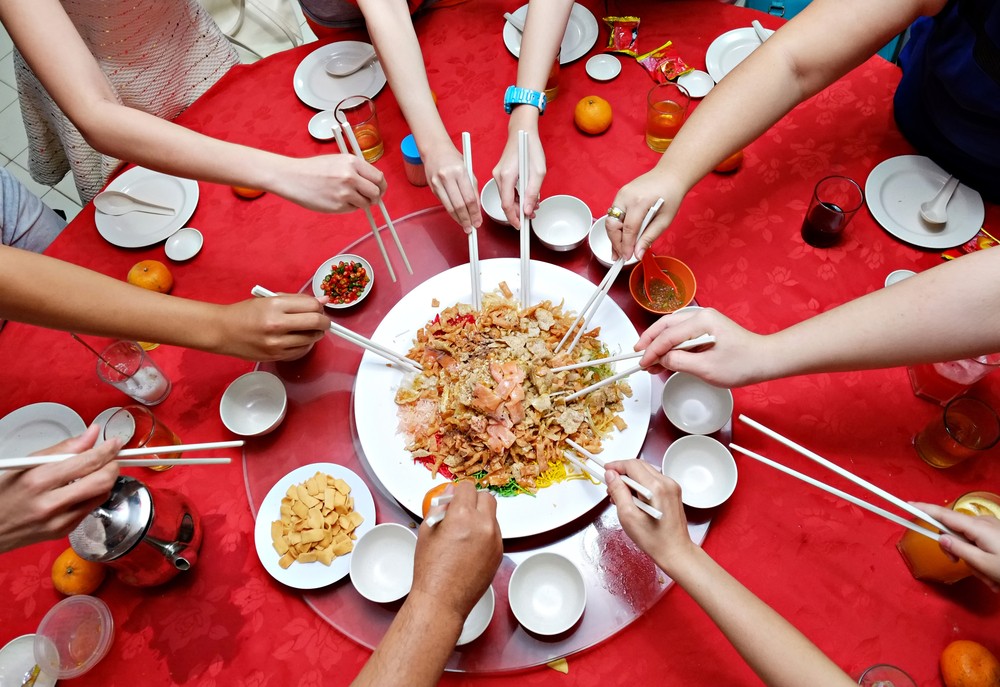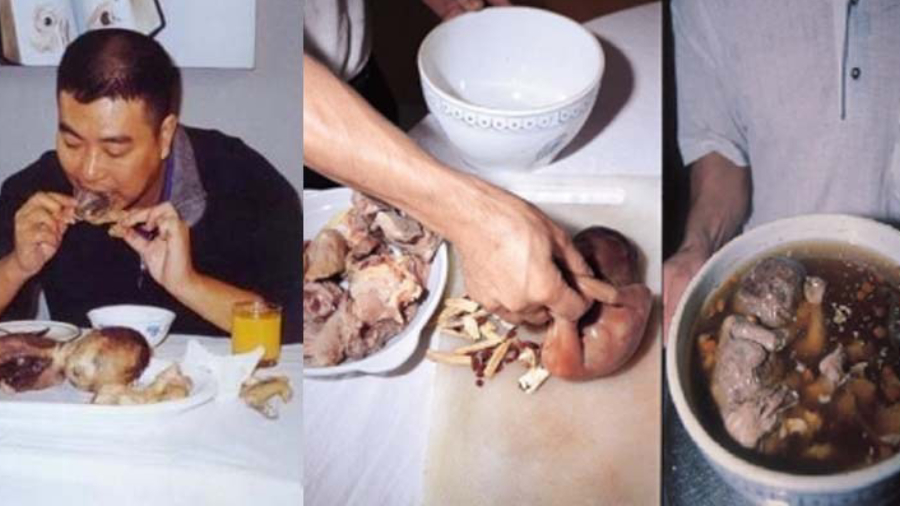20 Top Reasons To Taste the Regional Flavors of China
Wiki Article
Top 10 Tips To Explore Local Cuisines In China
1. Get to Know the eight Culinary CulturesTip. Learn about the eight most important Chinese culinary traditions: Sichuan Cantonese Hunan Anhui Fujian Fujian Fujian Each has its own flavors, techniques and cuisines.Pro: Plan your culinary experiences according to your personal preferences.Con: It's hard to keep track of the particulars of every cuisine.
2. Embrace Local SpecialtiesYou should try the local cuisine, be it Peking Duck, Xiaolongbao, or Hot Pot, in Chengdu.Pro: You will have a rich cultural experience and authentic dining experiences.Con: May restrict your exploration of other food options while in a particular region.
3. Take note of regional flavorsTips: Sichuan dishes are spicy and painful to the taste. Cantonese foods are light and fresh. Jiangsu food is sweet and delicate. Pick your dishes based on your spice tolerance.It is best to avoid eating food that doesn't suit your preferences.Con Some flavor profiles need some experimentation in order to achieve.
4. Discover Street FoodTip: Each city has unique street food offerings including Jianbing (savory crepes) in Beijing or Roujiamo (Chinese hamburgers) in Xi'an. Explore the local cuisine and try some of the food items.Pros Street food is affordable, convenient, tasty and an excellent method to get a glimpse of the local culture.Cons: Hygiene can be an issue. Pick vendors that have an extremely high turnover.
5. Learn Basic Dining EtiquetteTip: Learn about Chinese dining customs, which include eating meals with family members. Also, avoid cutting chopsticks with the standing position.Pro: It displays respect for local customs and traditions, and can enhance your dining experience.Cons: Adapting to new manners of conduct takes time.
6. Ask locals for recommendations.Locals often have an idea of the top places to eat or dishes within a specific area. Don't be afraid to ask for advice.Cons: You won't be able to find the hidden treasures.Cons The difficulty of communicating can be due to language barriers.
7. Be prepared to accept inputs that are not familiar.If you're looking for an innovative recipe, consider experimenting with unusual ingredients. Be open to new cuisines.Pro: Enhances your understanding of Chinese culture through expanding your taste buds.Con: Certain dishes might not fit your tastes or diet restrictions.
8. Be able to accommodate dietary restrictionsTips: You can use Mandarin phrases to express allergies or preferences. For example, "Wo bu Chi Rou" (I do not take meat for dinner).Pro: It guarantees that you will have an comfortable experience.Con: Certain foods might not be able to accommodate specific diet restrictions.
9. Pair food and regional drinksTips: Try local beverages like Shaoxing wine from Zhejiang and tea in Fujian or baijiu in northern China.Pro: Complements the cuisine and gives depth to the dining experience.Con: Strong flavors like baijiu aren't for everyone.
10. Avoid OverorderingTips: Chinese food is typically served family-style, so be conservative when ordering and order more if necessary.Pro: Reduces food waste and guarantees that you are able to try a variety of foods.Con: Because of the variety of options It can be tempting to purchase too many.
The benefits of exploring regional Cuisines In ChinaDiverse Flavors: Experience an incredible variety of tastes methods, ingredients, and techniques.Cultural Insight: Growing your knowledge of regional traditions and the identities of each.Cost-effective: There are a variety of local dishes and snacks that you can enjoy.Memorable experience: The taste of classic dishes at their original location can create memories that will last a for a lifetime.Pros and Cons of Exploring regional cuisines in ChinaHygiene Issues Certain street food or restaurants might not meet international sanitation standards.Language Barriers: Menus and descriptions could only be written in Mandarin which makes it difficult to order.The unfamiliar tastes and textures certain people, certain flavors or texture might be foreign to them.Food restrictions: People who have extreme food sensitivities or strict vegetarians may have difficulty eating in certain areas.Utilizing these suggestions and being adventurous will allow you to experience the wide range of regional Chinese cuisines, while also overcoming any challenges. Have a look at the top rated delicious Chinese dishes to try for blog advice including a deep dive into China food culture, savoring the best of Chinese cuisine, tasty delights from China, explore local Chinese cuisine, the best food destinations in China, culinary wonders of China, explore the riChness of Chinese food, taste your way through China, the ultimate guide to Chinese cuisine, explore diverse Chinese dishes and more.

Top 10 Tips For Tipping Practices In China
1. It's important to understand that Tipping In China isn't a customary tip. Tipping is not an everyday practice in China. This applies to small eateries, local restaurants and some of the larger ones.Pro: It saves money and is in accordance with the norms of culture.Con: Could feel strange for travelers who have a habit of tipping at home.
2. Find out about Service FeesTipping - High-end restaurants hotels, restaurants and other establishments typically have service charges (10-15 percent) as part of the bill. Tipping is, therefore, not required.Pro: No need to make calculations or leave an additional tip.Con: Service charges might not always be clearly indicated.
3. It is only appropriate to tip when appropriateTips: In areas that are populated by tourists or hotels that are international, a tip can be expected, particularly by drivers, tour guides, or hotel staff.Pro: A simple gesture of appreciation could show your gratitude for exceptional service.Cons: There could be confusion regarding the appropriateness of tipping.
4. Offer Tips DiscreetlyDon't tip too much. This can cause the recipient to feel awkward.Pro: It prevents you from attracting attention.Pros: A few people might refuse to give you a tip, which can lead to awkward situations.
5. Cash tipping is possible.Tips: If tipping is appropriate, pay cash instead of adding it to the bill, as many payment systems in China don't include an option to tip.Pro: Cash can be used anywhere and is easy to acquire.Cons: Small denominations are required, which can be inconvenient.
6. It is also possible to give an offer to establishments that cater to touristsTipping can be expected and appreciated in tourist areas which are popular with Western tourists.Pro: Aligns to the requirements of service providers that are comfortable with Western norms.Con The practice encourages gradual tipping into cultures that traditionally do not practice it.
7. Avoid Tipping Taxi DriversTipping is not common. Round up the cost when you're required to.Pro keeps you on track with local customs while showing the right side of goodwill.Pro: Some people might wrongly interpret rounding up as gratuity when they are in locations that aren't tourist-friendly.
8. Don't forget to pay your tour guide a small tipTipping is a common practice on group and private excursions in cities like Beijing or Shanghai. A modest sum (e.g. 50-100 Y) is greatly appreciated.Pro: Appreciates efforts and encourages the use of services.Con Setting expectations for visitors who will tip more.
9. Avoid Over-TippingTipp: A small amount (5-10 percent or less) is sufficient if you choose to leave a tip. A tip of a large amount can be viewed as excessive or ineffective.Pro: It keeps the user from overspending, or offending your locals.Cons: Refraining from tipping can be uncomfortable for those who are used to giving generously.
10. Research Ahead of TimeBefore arriving, learn about the specific rules for tipping your destination or region. There might be different rules in different provinces or companies which cater to foreigners.Pro The benefit is that you will be able to easily adapt to local customs with no confusion.Con: It takes time to study each area or location individually.
Cons of Tipping Practices In ChinaCost Savings: Not having to tip can mean lower overall expenses.Cultural Adaptation: Alignment to the traditional ways of life and encouraging respect and integration.Simplicity: There is no need to carry extra cash or calculate.Focus on Service: Encourages providers to focus more on service quality and not just on tips.The cons of Tipping practices in ChinaPeople who are used to tipping may have a difficult time adjusting.Awkward situations: Giving a gratuity in the wrong way could result in confusion or discomfort.Changes in Expectations Tipping has been introduced by tourism in some areas, leading to inconsistent practices.Missed Gratitude Tipping is a method for some travelers to show gratitude. Its absence could feel like a restriction.By following these tips you will be able to navigate China's tips with ease. This will ensure both cultural respect as well as a pleasant dining experience. Follow the recommended discover Chinese street food for more recommendations including top Chinese food experiences, authentic tastes of China, uncover China food traditions, top Chinese food experiences, a culinary journey through China, discover Chinese street food, the best food destinations in China, Chinese food you must try, explore China food scene, a tour of China regional cuisine and more.
